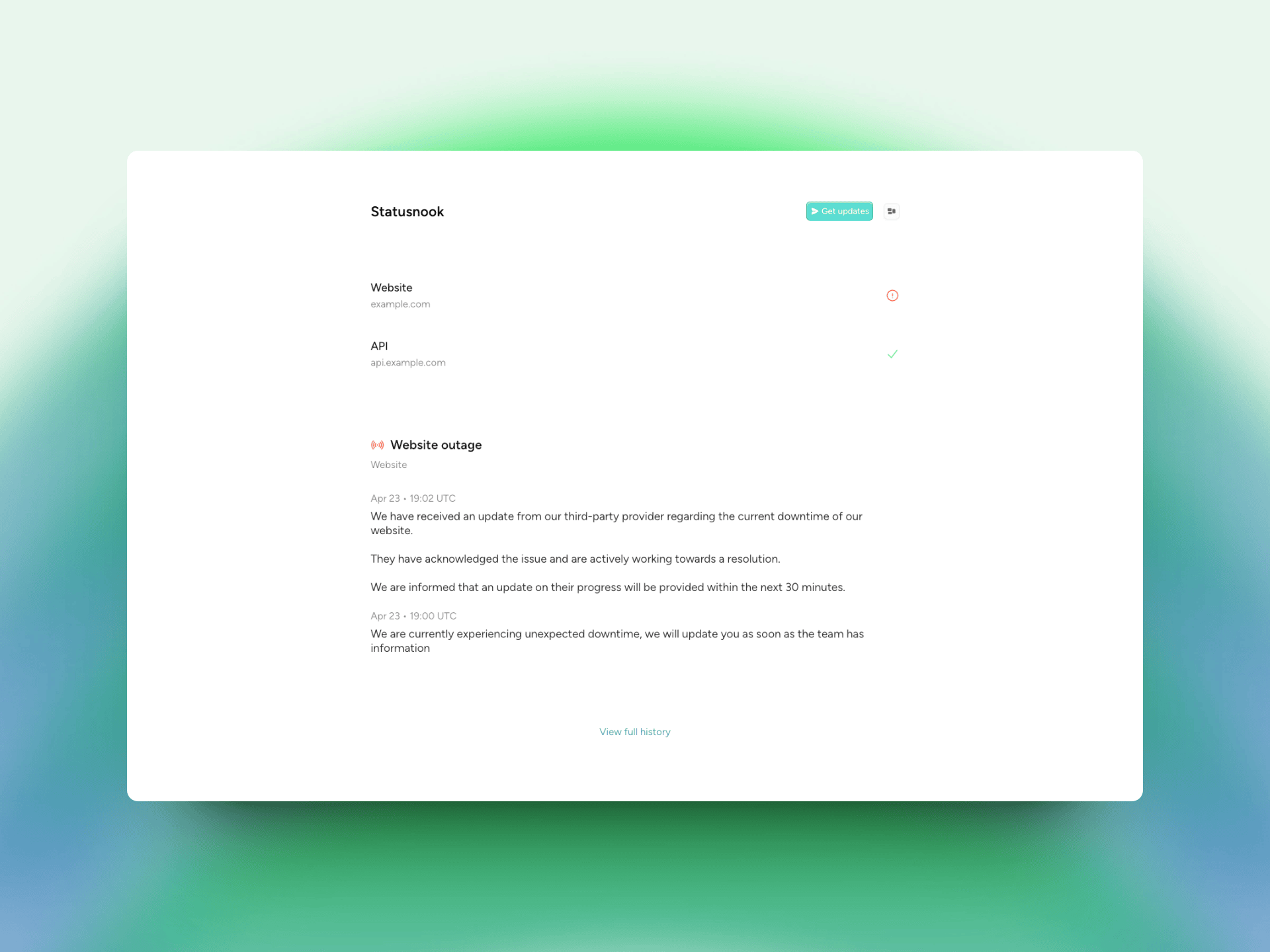Share incident & maintenance alerts with your status page visitors

curl -fsSL https://get.statusnook.com | sudo bash

Automatic HTTPS
Point a domain at your server and the rest, including certificate renewal, is taken care of
In-app updates
Effortless upgrades with no manual tasks or scripts to run via SSH
Official Docker images
We'll keep things up to date to make your container upgrade path straightforward
Reverse proxy support
Slots into your existing configuration alongside other services
MIT License
Freely use and customise the code without restrictions
Self hosted
Your data, your resources, whether that's a $5 VPS or a beefy dedicated server
Deploy in seconds with automatic HTTPS
Requires ports 80 and 443
curl -fsSL https://get.statusnook.com | sudo bash
Supports distributions like
Run Statusnook on a chosen port
Add to your reverse proxy setup
curl -fsSL https://get.statusnook.com | sudo bash -s -- -port 8000
Choose from reverse proxies like
Spin up a Docker container
Uses official images
Start via the CLI
docker run -d -p 127.0.0.1:8000:8000 -v statusnook-data:/app/statusnook-data --restart always goksan/statusnook
Start via compose.yaml
services: statusnook: ports: - 127.0.0.1:8000:8000 volumes: - statusnook-data:/app/statusnook-data restart: always image: goksan/statusnook volumes: statusnook-data: name: statusnook-data
docker compose up